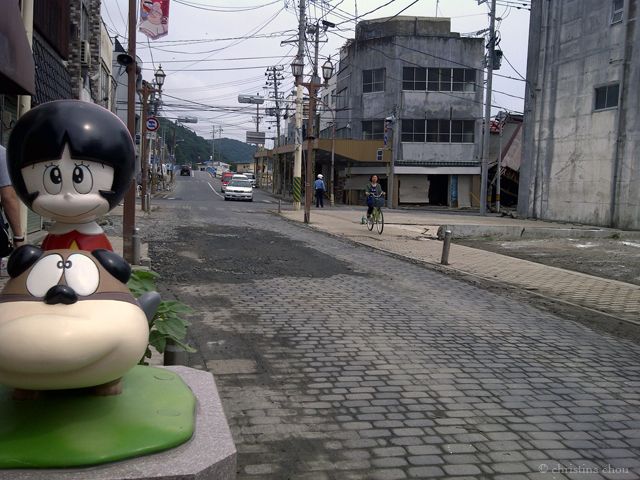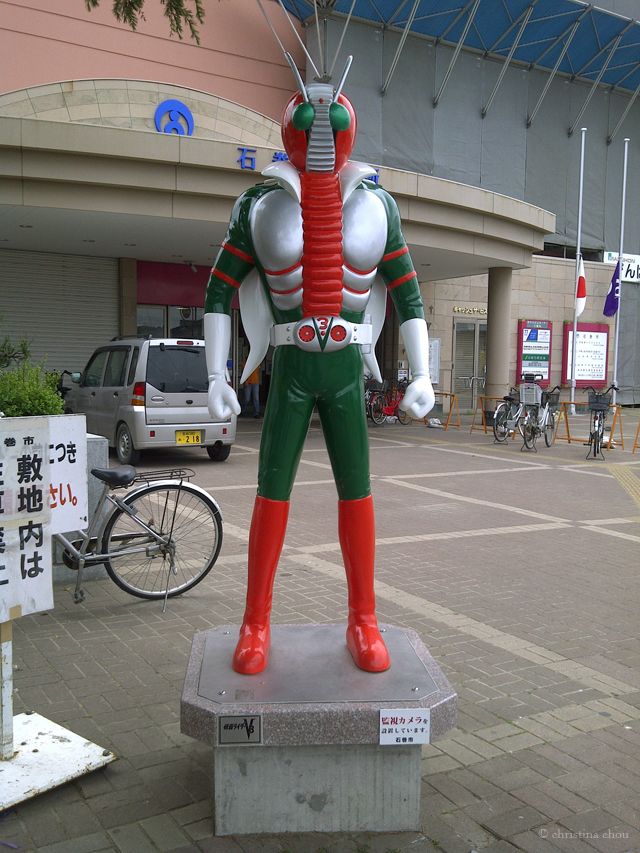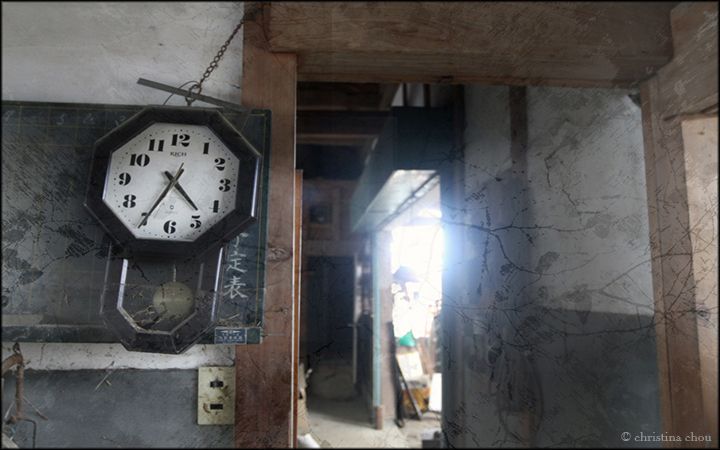How to Make a Subway Map with John Tauranac
Hear from an author and map designer who has been creating maps of the NYC subway, officially and unofficially, for over forty years!


Ishinomaki is a quiet town whose main attractions are Manga Road and Mangattan, an oblong-shaped museum dedicated to Shotaro Ishinomori. Ishinomori is a mangaka or manga writer, most renown for his 1970s popular anime Kamen Rider and often compared to American Marvel comic book writer, Stan Lee, creator of Spiderman and other heroes. Manga Road begins right outside of the Ishinomaki train station, spans across the city, and ends at the Mangattan museum, or Ishinomori Manga Museum, built in 2001. The edifice, comically shaped like a bubble and UFO saucer, boasts of Ishinomori’s original artwork-displays of Cyborg 009-as well as characters from Android Kikaider, Robocon, and other anime series. Along Manga Road, various life-sized iron anime figurines are bolted to the ground. Ranging from superheroes to beloved characters, these structures stand out in the tsunami aftermath, still brightly colored.
In June, I trundled into the Ishinomaki JR station dripping sweat and smelling like karaage (࣠” ¹à£”Å¡” °à ¦ à… ¡à£ ’)-fried chicken. Even three months after the earthquake and tsunami, trains still couldn’t run directly into the city due to reconstruction. Relief workers and I had transferred several times and then took a tightly packed bus whose exhaust fumes smelled crispy and tantalizing. I was here to shoot documentary footage of tsunami relief and was naàÆ’ ¯ve to think we could come away unaffected.

Ishinomaki was one of the hardest hit cities by the March 11th Tohoku (northeastern region) earthquake that rocked Richter scales at a 9.0 magnitude. The nation of Japan is structurally prepared for earthquakes, experiencing around 1000 shakings a year. However, the tsunami utterly devastated numerous cities in the Iwate province with waves up to 23 feet tall. Ishinomaki was one of these cities, with slightly more ironic survivors.
I came to cover the unseen heroes behind relief work, but found a city filled with manga superheroes that could only watch when water struck-ironic and heart breaking. Before the volunteers and I hit the little blue bridge over the Kitakami-gawa River, we had seen enough to know that Mangattan and everything close to the water would be in horrible shape.

It is disturbing to see what devastation remains after three months. Makeshift memorials litter the roads alongside personal items like house slippers, pillows, tea mugs and a Stevie Wonder CD. Clothes are strung haphazardly through the branches of uprooted trees. The city is eerily quiet save the lone cry of a bento girl outside of the supermarket. There is the faint hum of tractors lifting debris and knocking rotting houses down. It’s strange to see a developed nation look like this.
I am charged by the quiet resilience of Japan as a nation, because it’s far from a passive silence. The residents of Ichinomaki remain; they continue to rebuild despite a lack of government funds and organized assistance. Most help comes from church volunteers, small non-profits, but mainly local hands: neighbors, friends, strangers that just want to serve. These are the heroes that find, not irony, but solace in the silent anime figurines. These monuments of Ishinomori’s work are fond reminders of the city’s hey-day and a constant source of comfort, inspiration and even aid. As of July 2011, there have been various fundraisers thrown by the Mangattan and a steady stream of visitors returning to the city.
Stan Lee once said, “While no one is expected to leap tall buildings in a single bound, our aspiring heroes will be tested on their courage, integrity, self-sacrifice, compassion and resourcefulness-the stuff of all true superheroes.” Rebuilding is, for many, a logical next step of survival. However, rebuilding a city as a community-that is a feat of heroism. As the government hits delay after delay on promises to help rebuild, citizens are stodgily doing it themselves and extending help to each other. “Tachiagare, Nippon”, hand-scrawled signs say across fields or boarded houses– a battle cry of encouragement to “stand up, Japan!” As the people of Japan rebuild, as Ichinomaki residents raise the city back, these silent heroes on Manga Road will remain. They are figures of hope for things to come.
Our prayers go out to all the families and people of Japan affected by the earthquake and tsunami. Tachiagare, Nippon. We stand with you, Japan.

Subscribe to our newsletter